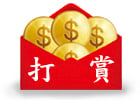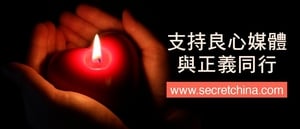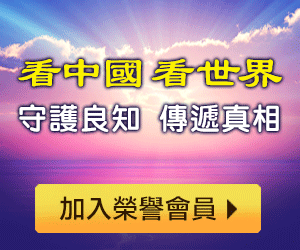韓國媒體The Korea Times:中國記者在G20上搶鏡並遭抨擊
北京 ——芮成鋼, 中國國家電視臺CCTV的一名記者,在赴韓國報導G20峰會的時候因其引爭議的言論成為新聞亮點。
「我想我能代表全亞洲,」在上週的新聞發布會上,芮這樣告訴歐巴馬總統。當時作為美國國家元首的歐巴馬說他能為作為東道主的韓國的媒體回答最後一個問題。
芮舉起手,歐巴馬還以為他是韓國人。「很不幸,不好意思讓你失望了,歐巴馬總統,我實際上是個中國人。」芮說。
歐巴馬申明:「儘管如此,公平起見,我剛貌似已經說了要把這個問題留給韓國媒體。」
芮不折不撓:「我的韓國朋友們,你們同意由我代表你們來問這個問題吧?要得不?」
一輪嘰歪後,歐巴馬算球了沒有再堅持。
這個插曲很快成為中國網際網路上的一個熱點事件。甚至比正在廣州舉辦的亞運會還扯眼球。
中國記者、前哈佛大學曼尼學者安替都幫芮成鋼感到無地自容,在他自己的FACEBOOK上,安替「代表」芮成鋼道歉,他寫道:「對不起,歐巴馬及韓國的記者們。」
「他的行為實在是很不禮貌。我想他應該對歐巴馬和韓國記者們道歉。」安替在接受記者採訪時說。
「我光看著都覺得尷尬。他就像是在挑釁。」在北京駐站的加拿大Globe and Mail報記者Mark MacKinnon在採訪中說。「這將歐巴馬置於一個非常不爽的位置,貌似這樣就逼他認可了中國或者說中國記者能替全亞洲的媒體人員說話一樣。」
芮在2007年的時候,因為在博客上發起一場草根愛國運動而成名。當時他們要把美國的星巴克分店趕出北京歷史性的紫禁城(故宮)。現在,那裡在賣中國茶。
自然而然, 芮在某種意義上成為中國一個著名的愛國主義符號。也成為那些堅信西方在破壞中國崛起的愛國主義者們心目中英勇鬥爭的英雄。
有些中國人把在首爾上演的這一場幕解讀為中國和美國力量角逐的象徵。一個叫王子緋村(?)的人在博客上寫:「美國經常說自己代表著世界的自由和民主,那為什麼中國記者不能代表亞洲呢?」
「你們難道意識不到芮成鋼是中國的驕傲嗎?」一個讀者在財新網上說。
有些芮的支持者說, 新聞業天然就是競爭性的職業, 他們辯稱,芮成鋼不過是在做他自己的工作而已。他們還說,他的做法在西方的新聞實踐中也是廣為接受的。
而加拿大記者MacKinnon卻不這麼認為。「這是不一樣的。如果你是在新聞發布會的搶問模式下, 當然所有的記者就都有這種自由。你有時候還可以吼別人。但是,這是另外一種不同的情況。 在一個如此正式的國際性的新聞發布會上,特別是歐巴馬總統都已經說了把這個問題留給主辦國了,他竟然還跳出來堅持提問甚至還宣稱自己代表了整個亞洲板塊,實在是很失禮。」
「今年的早些時候,加拿大主辦了G20.如果在當時,某一個總統把提問權交給加拿大記者,而另一個美國的記者卻站起來說‘你知道我是在代表整個北美大陸提問’,那將會被認為是(對加拿大)嚴重的冒犯。」MacKinnon說。
在引爆輿論熱議之後,芮成鋼在他自己的博客上回應說,他並不比美國的記者更粗暴。「其實,提問對話美國總統不是什麼大事兒,歐巴馬幾乎每天都會面對各種各樣的挑戰性甚至是進攻性的問題,這是他工作的一部分。」
然而,另外一個中國的博主則質疑:那芮成鋼你在中國的領導人面前是不是也能這樣做呢?「顯然,他根本不敢」該博主說。
是他的過度自信,而並不是他提問的實際內容,讓那些認為他自負而傲慢的人們無語了。一些批評者說,芮成鋼是當下中國現實的一個剪影。具有矛盾的雙重特徵,一方面,自信心和力量都在增長,但是另一方面,卻呈現出傲慢和囂張跋扈的膨脹。
「中國的形象很不好,這已經是一個問題了,」芮成鋼在去年曾經這樣對美國媒體說過。然而,一些觀察者認為,他自己正好就為這個問題的存在貢獻出了一份力量。「芮成鋼的言行或許會破壞中國記者乃至整個中國的國際形象。」環球時報的記者王Zhaokun如是說。
Chinese reporter at G20 steals show and slammed
By
Sunny Lee
BEIJING ─ Rui Chenggang, a reporter with China’s state-controlled CCTV, went to Seoul to cover the G20 summit and became a news story himself due to his controversial remarks.
「I think I get to represent all of Asia,」 Rui told President Barak Obama during a press conference last week, in an exchange with the American head of state, who said he would answer a final question from the press of Korea, the
host.
Rui raised his hand and Obama thought he was Korean. 「Unfortunately, I hate to disappoint you, President Obama, I’m actually Chinese,」 Rui said.
Obama clarified: 「In fairness, though, I did say that I was going to let the Korean press ask the last question.」
Rui was unwavering: 「Will my Korean friends allow me to ask a question on your behalf? Yes or no?」
After a round of exchanges, Obama relented.
The episode soon became an attention-grabber on the Chinese Internet, outstripping the popularity of the currently unfolding Asian Games in the southern city of Guangzhou.
Michael Anti, a Chinese journalist and a former Nieman fellow at Harvard University, felt so embarrassed by the episode that he posted an apology on Facebook on behalf of Rui. 「Sorry, Obama and Korean journalists,」 he wrote.
「It was an impolite move. I thought Obama and the Korean journalists deserved an apology,」 he later said in an interview.
「Watching it, I felt very awkward. It almost seemed like he was trying to push confrontation,」 said Mark MacKinnon, a Beijing-based correspondent for Canadian newspaper, the Globe and Mail, in an interview. 「It put Obama in a very
uncomfortable spot for having to accept the premise that China could speak on behalf of, or Chinese reporters could speak on behalf of the Asian press corps.」
Rui became a celebrity figure in China in 2007 when his blog ignited a grass-roots patriotic movement that helped push
Starbucks, an American coffee brand, out of Beijing’s historic Forbidden City. Now, Chinese tea is served there.
Naturally, in some pockets of China, Rui is very popular as a symbol of patriotism and as a hero who stands against
the West, which they think is trying to undermine China’s rise.
Some Chinese saw a symbolic jostling of power between China and the U.S. in Seoul. A blogger named Wangzifeicun said: 「America often says it represents freedom and democracy of the world. Why can’t a Chinese journalist represent Asia then?」
「Rui Chenggang is China’s pride. Can’t you realize that?」 A reader on the website Caixin said.
Some supporters of Rui pointed out that journalism by nature is a competitive profession and argued that he simply did his job, adding that what he did was very much acceptable in Western practice.
MacKinnon, the Canadian journalist, doesn’t think so. 「There is a difference. If you’re in a scrum, then it’s sort of free for all journalists. You sometimes shout over each other. But there is a different protocol. In a formalized press
conference, especially in an international press conference where Obama was giving a question to the host country, to jump up and insist to ask a question and also claim to represent the entire continent, was inappropriate.
「The G20 was hosted by Canada earlier this year. And if a president gave the question to a Canadian reporter, then an American stood up and say, ‘you know I speak on behalf of the North American continent,’ that would be very offensive,」 MacKinnon said.
After the eruption of the controversy, Rui responded on his blog, saying he was no more aggressive than American journalists. 「Actually, asking a question of an American president is not a big deal. Obama almost every day faces various challenging and even a (verbal) assault from journalists. This is part of his job.」
Yet a Chinese blogger challenged whether Rui would behave the same way in front of a Chinese president. 「Certainly, he wouldn’t dare to,」 he said.
It’s Rui’s over-confidence, not the substance of his question, that unnerved people who saw Rui as cocky and overbearing. Some critics say Rui is a vignette of today’s China, with two conflicting identities. On the one hand, it is increasingly confident and powerful, but on the other this is seen by some as increasingly being arrogant and domineering.
「China has a really bad image problem,」 Rui told the American media last year. Some observers say he has contributed to it. 「Rui’s behavior might undermine the image of Chinese journalists, or even that of China abroad,」 said Wang Zhaokun, a journalist with the Global Times.
来源:開心網
短网址: 版權所有,任何形式轉載需本站授權許可。 嚴禁建立鏡像網站。
【誠徵榮譽會員】溪流能夠匯成大海,小善可以成就大愛。我們向全球華人誠意徵集萬名榮譽會員:每位榮譽會員每年只需支付一份訂閱費用,成為《看中國》網站的榮譽會員,就可以助力我們突破審查與封鎖,向至少10000位中國大陸同胞奉上獨立真實的關鍵資訊, 在危難時刻向他們發出預警,救他們於大瘟疫與其它社會危難之中。





